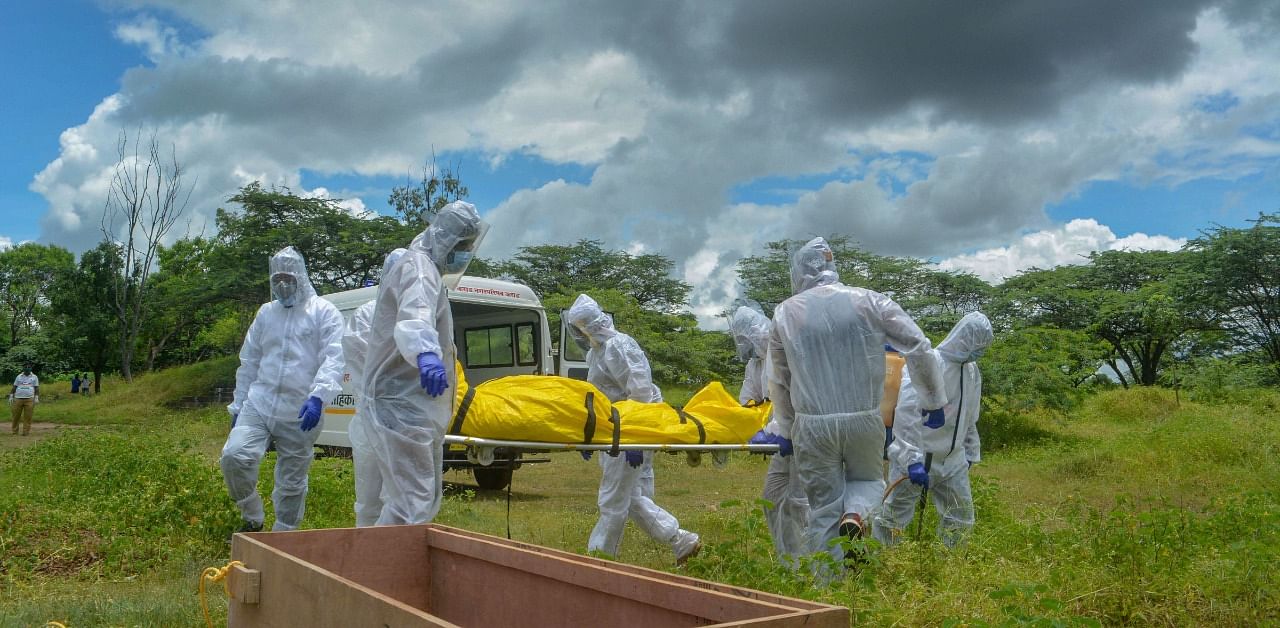
More than 200 researchers, epidemiologists and public health professionals from India and abroad have urged government agencies to release data on registered deaths to understand the mortality impact of the Covid-19 pandemic in India.
In an appeal to the Office of the Registrar General and Census Commissioner of India, state registrars and other agencies which maintain death records, the signatories said that vital registration systems that record births and deaths are "unrevealed health surveillance tools" that are particularly valuable in responding to epidemics.
"This data enables the calculation of 'access mortality' statistics, that is, mortality above what we would have expected under normal conditions.
"If made available publicly by government authorities, these statistics will help quantify the mortality impact of the Covid-19 pandemic in India in real time and guide policy responses," they said.
"We, the undersigned, urge government authorities to immediately release available data on registered deaths to understand the mortality impact of the Covid-19 pandemic in India," the appeal dated August 2 said.
India's Covid-19 tally increased to 18,55,745 on Tuesday with 52,050 people testing positive for coronavirus infection in a day, while the death toll due to Covid-19 climbed to 38,938 with 803 fresh fatalities being reported in 24-hours, the Union Health Ministry's data updated at 8 am showed.
The letter stated that in the last few months, vital registration systems in many countries have made available these statistics and galvanised them to inform their mitigation strategies.
Like in other countries, this data will help public authorities in India identify places that need restrictions on movements, increased testing, and where healthcare provision needs to be strengthened.
"This data will also add to the scientific knowledge on Covid-19 in India, by improving understanding of the infection fatality rate of the virus,” the signatories said.
"We urge civil registrars to release individual level anonymised data that contains information on sex, age, home location identifiers (such as district), and date of death of the deceased person," they said in the letter.
To estimate excess deaths correctly, information on deaths for at least the last three years (2018, 2019, and 2020) would be crucial. If causes of death are available for these years, they urged the authorities to release them too.
At a minimum, deaths from accidental mortality be identified separately, they underlined.
"Additionally, we request that death registration be encouraged. Centres, where deaths are registered, should remain open and follow social distancing norms," they said.
Although vital registration in India is incomplete, the experts stated registered deaths data has the ability to guide public health decision making.
They also mentioned that according to a latest report from India's civil registration system, 86 pc of all deaths were registered in India in 2018. Death registration was complete in 16 out of 36 states and Union Territories.
"We understand that public authorities in India are already stretched and work under many constraints. The pandemic and subsequent lockdowns have made the work of public officials more difficult, and more essential. As researchers, scientists, journalists, and public health professionals, we would be happy to assist public authorities in cleaning, analysing, and understanding the implications of these data," they said in the letter.
The 2018 annual report of vital statistics of India says the civil registration system “serves as the cornerstone of the public health system.”
At no other point in the history of India has the data collected by this system been so important, the letter said.